Free Book Friday Nov. 10: In Conversation with Sci-fi author Nicholas Lemieux
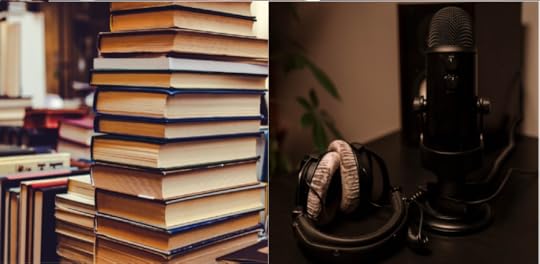
Don’t forget to check out this week’s book promos after the interview! (There’s a lot)
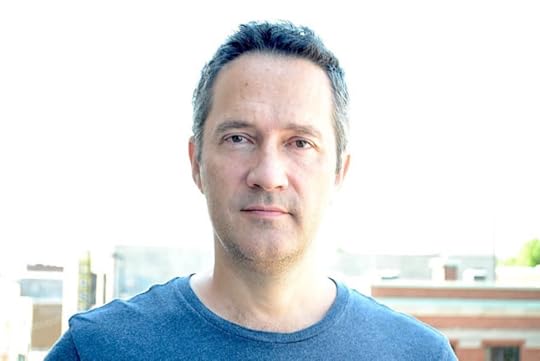
In Conversation With: Nicolas Lemieux
My name is Nicolas Lemieux and I live in Montreal with my wife Marie-Claude in a third-story apartment overlooking an interesting, green back-alley. Although French is my first language, I like to write in English primarily. My chosen writing genre is science fiction.
Aujourd’hui, j’ai le plaisir de m’asseoir avec l’écrivain et bientôt publié auteur Nicolas Lemieux. Merci d’être venu. Puis-je vous offrir quelque chose à boire ?
Oui! Euh…
[Since French is my guest’s first language, I shall conduct the entire interview in—Wait. Je ne parle pas Français… except what I learned in school, and we all know what good that did most of us, right?]
Let’s begin again. Today, I have the pleasure of sitting down with the writer and soon published author Nicolas Lemieux. Thank you for coming. Can I offer you something to drink?
Merci mon ami! Votre français est impeccable. Tout comme le mien, d’ailleurs. Mais sachez que je parle également le québécois moderne : “Merci mon ami, je prendrais ben un bon p’tit gin de l’Ungava bien sec avec ma poutine sans gluten au bœuf de pâturage.”
In English, this would (almost) mean “Thank you, sir, I wouldn’t object to a wee dram – Lagavulin (16 years) is a personal favourite of mine – and a hefty serving of haggis. But a nice glass of water is perfectly fine too, and probably more in line with my daily habits.
Or if you like, let’s grab a coffee. On me.
Since it is a bit early for scotch, let’s go for the coffee option.
Agreed!
When people hear Montreal, they do think it is a city of French speakers but there is a very large number of English speakers as well as a very diverse ethnic population, right?
Absolutely. Montreal is a diverse place with all kinds of percentages in terms of demographics. This Wikipedia page says English speakers make about 13.2% of the population while French speakers make another 65.8%. My personal experience is that the languages you hear and speak vary as you move around the city (the east-west axis is interesting in that vein, but not as clear-cut as it once was). What language you hear also depends on where you live and work. My daily life happens mostly in French because this is how I was brought up. So when I write in English (this is what I do), I am in fact stepping away from my daily grind.
Since everyone (meaning me) wants to know, here’s the last unrelated writing question. Lemieux is a common Francophone surname, but … any relation to either Mario or Claude*?
Hey, my triplet brothers! Say hi when you see them! I miss them so much… Only kidding of course. We could be cousins, but very, very distant ones. They say we’re all descended fromtwo dudes who came over from Normandy back in the 17th century. Lemieux’s are pretty much all over the place but more concentrated in Canada primarily, and also in the States.
Let’s get to the writing questions. What was the first story you wrote?
I remember writing a “novel” when I was about seven or eight. It was about a monster that lived in a volcano. I’m sure I meant it as an adventure story, with heroes and such, but in truth I don’t remember much about the story itself apart from the fact that it was about four pages long (hence my double quotes around the word “novel”), and that I was supremely proud of having written it. I owe a debt of gratitude to my third-grade teacher for having encouraged me to push all the way through and actually finish it. I should still have the thick manuscript around, somewhere… Maybe I’ll dig it up some day, that’s an intriguing thought.
What made you want to write a science fiction book?
1- Writing in general: The effect that reading has always had on me. Losing myself in another world, discovering and exploring, being someone else entirely, and learning from the experience, and being changed by it… Besides reading (and other things), I spent most of my childhood inventing new crazy worlds and adventures. At a later point in my life, I felt the need to do it again, but flesh it out better, and come up with a story that I would love reading, and that I would be proud to share, hoping it had the same effect on others that so many good stories have on me.
2- Science-fiction in particular: I read some of the sci fi classics in my teens. (I might mention names later). I was utterly fascinated every time. I also read Patience dans l’azur, a wonderful book by our beloved and alas, recently departed astrophysicist, Hubert Reeves, who explained – so well – that we are in fact made from the dust of stars. This book was a game changer for me, so much so that I went into physics. But I wasn’t meant to be a scientist. I switched to music, more specifically classical singing, which I made my main activity for two decades. But in the meantime, there was the advent of the Internet and the Web, and fascinating developer jobs… All to say, one day I realized that writing had the potential to include all my previous and current attractions and passions. Music and physics both, adventure, exploration, passion, and human life… So I wrote. And naturally, science fiction came up as my first love, so this is where I went, and I’m glad I did.
Do you think science fiction is harder to write today since our scientific knowledge is much greater?
Excellent question!
I thought so… sorry, please continue.
Yes and no. Or rather, maybe, perhaps. Could be, but then again… There is always more and more to explore. The more we learn, the more we know that we don’t know. And now that I think of it, I don’t believe science fiction should be any more or less hard to write today than it used to be in the past or will be in the future. Traditionally and historically, science fiction has often been a tool to mirror our current ways; a means to reflect our current world back to us with alterations that magnify and underline the contradictions and beauties, ironies, pains and absurdities. Science fiction challenges the way of things by pinpointing dangers and pitfalls, and potential horrors… But also, by showing the many possibilities, solutions and hopes that our future might entail if we pay attention. Personally, I like to focus on the hope I see at the heart of it.
You describe your novel, Seven Drifts, as “… an epic space opera story featuring a drifting city spaceship, a wannabe sleuth and some murders, a brewing rebellion and an antique wooden treasure chest.” Care to elaborate on that?
Well, it’s true: the story does have all that.
Anita Burgess lives in a city starship named Seven. Seven is actually a long stack of large O’Neill cylinder space habitats which constitute the districts of Seven which has been adrift for two centuries.
During her teenage years, Anita aspired to be one of the mayor’s mentees, but had to abandon her dreams to care for her ailing father. Despite feeling like a failure, she became a capable caretaker and eventually found employment looking after Zoe Crasotte. However, when Zoe’s granddaughter, Leona, inherited the house and an antique wooden chest, ornamented with arcane carvings and stories Anita had to find a new place to work and live. Nonetheless, she and Leona remained close friends.
Anita now works at the district’s botanicals. They have a shed in the woods that she calls her shit shed. Because that’s where she brews her special blend of fertilizers. She is a compulsive reader of crime stories and fancies herself as cunning as Rita Stalker, her favourite fictional sleuth.
One rainy night (there is actual weather in the districts of Seven, even if it is indeed an artificial space city), she stumbles upon a dying man…
Does this help? Would you want to read that story? What’s up with the chest? Who’s the villain?
So … no singing?
Lots of it! Leona’s singing eventually becomes a key part of the plot. Everything is interconnected somehow.
And the book, Cradle, is it a prequel to get readers interested?

Cradle is not really a book per se, but rather a short scene from the second draft of Seven Drifts. I wrote it when I began working with my excellent developmental editor Courtney Harrell (who is also a wonderful writer – and did you know she just won an award at the Nashville Film Festival?).
Cradle is actually the very first bit of the whole story I ever shared with anyone else. When I started building my author platform, I chose Cradle as my free giveaway because it had an energy I liked, and something about it just seemed to work for me. So I barely edited it and put it out there, and it has gathered a lot of positive feedback ever since.
What authors influenced you?
In no particular order:Henri Vernes, Elisabeth Vonarburgh, Esther Rochon, Isaac Asimov, John Irving, Antoine de Saint-Exupéry, Philip José Farmer, Umberto Eco, Alexander McCall Smith, Diana Gabaldon, Georges R.R. Marten, Kim Stanley Robinson, Gregory Benford, J.K. Rowling, Michel Tournier, Alastair Reynolds, Orson Scott Card, Neal Stephenson, Hugo Pratt, Mézières Christin…I know I’m just listing a bunch of authors I love, really, and there are so many others.
Do you have a favorite book?
Hard question! In the past, I have mentioned Anathem, by Neal Stephenson; certainly one of my all-time favourites. But in truth, the book I’m reading at a given time is usually my favourite book. If it’s not, I might not read it. I mentioned House of Suns, also, by Alastair Reynolds. But have you read the Mars trilogy by Kim Stanley Robinson? Life changing! These days, I’m reading Alastair Reynolds’ Revenger series. Enjoying it very much.
I do remember reading book one of that trilogy, many, many years ago.
I read the trilogy in the 90’s. I still catch myself thinking about it nowadays.
I have never met anyone who said they didn’t like music. Do you have any favorites?
I guess I’m kind of all over the place. Just curious. I was born in the sixties, so I grew up in the seventies and eighties. But I was always kind of behind my time. Still probably am, so I’ll just own it. So in the eighties, I listened to the Beatles a lot. Then later, I found out about Pink Floyd. And also Yes, and Genesis. Not to mention Händel, Bach, Monterverdi, Mozart, Strauss or Mahler when I went into classical, and I’ll forever revere them. A classic Metallica song can lift me up as well, or make me cry. I love The Scorpions, Ariane Moffat, Björk, Massive Attack, David Bowie, Jorane, King Crimson, Queen, Patti Smith, Joni Mitchell, Paul Williams, Peter Gabriel, Robert Plant, Sigur Ros, Dominique Fils-Aimé, Mister Drê-D, Fleetwood Mac, Led Zeppelin, Elisapie. There’s a lot to explore.
Are you ready for the lightning round?
Hit me!
My lawyers say I can’t legally do that, even with the invitation, so I’ll start asking questions. Quebecers: Bad drivers. True of False?
They are the worst! Grrr. Beware.
Most annoying social media platform?
LOL. All of them! It’s okay once you take control of your notifications.
Which states border Quebec?
Easy! New-York, Vermont, New Hampshire, and Maine.
Favorite city?
Quebec City of course! That’s where I’m from. Incredible river.
PC or Mac?
Ah! Wars of religion! Let’s fight! I work with both, but I prefer owning Macs.
Poutine. Are you a traditionalist?
Yummy! Nowadays, the plethora of variants has become the tradition.
This has been a pleasure. Thanks for chatting. Any links you want to share?
It’s been an absolute pleasure. I had a blast chatting with you! Here’s my website: www.nicolaslemieux.com. You’ll find my blog there, with my writing notes, book reviews and interviews… In November, be on the lookout for Leon Stevens’ fascinating answers to my questions!
You may download my free story “Cradle” upon subscribing to my newsletter at www.nicolaslemieux.xyz. I promise I won’t email too often, but the newsletter is a great way to stay informed of the state of my current project. For instance… How’s it doing? When am I going to release that Seven Drifts story?
*For the non-sports fans, Mario and Claude Lemieux were hockey players, the former being a bit more famous than the latter.
Onto the free and almost free books!The story behind Free Book Friday:I’ve met many authors and readers during my time marketing, cross-promoting, and blogging. I think writers have a responsibility to inform readers about all the indie authors out there in the very crowded world of book publishing. You can’t do it alone, and why would you when you have a supportive group available?
Readers don’t just read one author – they stick with their favorite genres. Therein lies the power in cross-promotion. If one of my readers buys a book from an author I promote, then chances are there will be a reciprocal effect, or so is the hope. Do I want to boost sales? Of course I do. Do I want to boost other’s sales? Why not. It’s called karma.
Some free book offers require a newsletter sign-up, which is a small non-monetary price to pay to try out a new indie author.
Reads From StoryOrigin and BookFunnelStoryOrigin and BookFunnel allows authors to advertise their books to each other’s audience. I hope you have been able to discover a new favorite!
Free Books

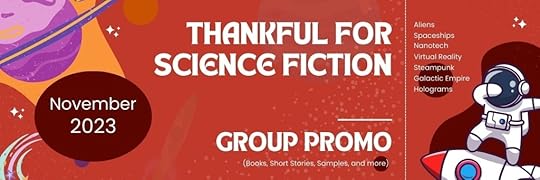

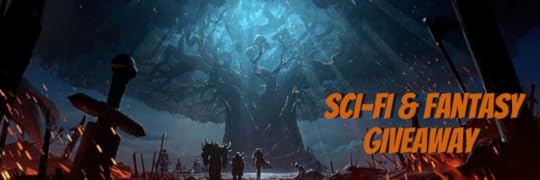 Starts Nov 7 Kindle Unlimited
Starts Nov 7 Kindle Unlimited Oct 14- Nov 13
Oct 14- Nov 13
 Sales/Purchase Links
Sales/Purchase Links


 Oct 25-Nov 22
Oct 25-Nov 22
Leon Stevens is a multi-genre author, composer, guitarist, songwriter, and an artist, with a Bachelor of Music and Education. He published his first book of poetry, Lines by Leon: Poems, Prose, and Pictures in January 2020, followed by a book of original classical guitar compositions, Journeys, and a short story collection of science fiction/post-apocalyptic tales called The Knot at the End of the Rope and Other Short Stories. His newest publications are the novella trilogy, The View from Here, which is a continuation of one of his short stories, and a new collection of poetry titled, A Wonder of Words.
My new book page: http://books.linesbyleon.com/

Sign up for my bi-weekly newsletter and receive a free book!
 Oh, pick me!
Oh, pick me!
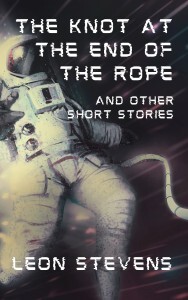 C’mon, space stuff!
C’mon, space stuff!



